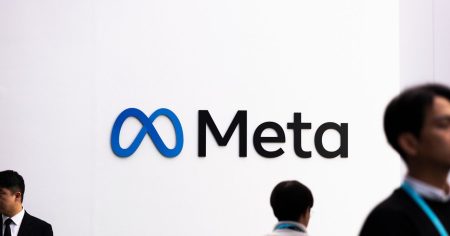The US Federal Trade Commission’s trial against Meta begins in Washington, DC, on Monday, as the tech giant fights to avoid the spinoff of Instagram and WhatsApp. The FTC alleges that Meta illegally acquired the two startups in an effort to suppress competition.
Meta (then called Facebook) bought the photo-sharing startup Instagram for $1 billion in 2012. About two years later, the company snatched up the chat tool WhatsApp for roughly $22 billion.
The FTC, one of the nation’s antitrust enforcement agencies, wants Judge James Boasberg to hold the tech giant liable for executing these mega deals to illegally maintain a social media monopoly. It has called on Boasberg to restore competition by ordering Meta to sell off its prized assets. A victory for the government could deter big tech companies from acquiring startups in the future, cutting off a key source of innovation and investment returns for venture capitalists.
The initial trial could last up to 37 days, wrapping as late as early July. If needed, a trial to decide on penalties would follow—likely next year. Appeals of any rulings could take additional years to resolve. So WhatsApp and Instagram aren’t going on sale anytime soon. But the possibility of losing two valuable properties helps explain why Mark Zuckerberg has reportedly been exploring a last-minute deal with President Donald Trump and White House officials to avert a fight in court. So far, those efforts appear unsuccessful.
Here’s what to expect as the trial kicks off.
What Is the FTC Arguing?
First, the FTC must prove that Facebook has a long-standing monopoly on “providing personal social networking services in the US,” according to its lawsuit. The category Facebook allegedly monopolizes includes services such as Snapchat and little-known MeWe, but notably excludes YouTube, TikTok, and other platforms that the FTC believes are more for watching videos by creators than following family and friends. From 2012 to 2020, Facebook commanded over 80 percent of users’ time per year within this narrowly defined market.
Second, it must show the acquisitions harmed competition in the social networking market. Around the time the Instagram and WhatsApp deal talks began, Facebook feared the threats that app startups posed to its monopoly, according to the lawsuit. Citing emails between Zuckerberg and other company executives—like Zuckerberg writing once that “it is better to buy than compete”—the FTC alleges that the company decided to buy nascent competitors to gain more time to figure out its own app development strategy. “Unable to maintain its monopoly by fairly competing, the company’s executives addressed the existential threat by buying up new innovators that were succeeding where Facebook failed,” the lawsuit alleges.
The FTC claims that after buying Instagram and WhatsApp, Facebook had fewer apps nipping at its heels and got away with providing less data privacy to users and more buggy and expensive services to advertisers. The deals also sent a message to competitors: companies trying to independently beat Facebook wouldn’t be able to get very far, the FTC says. This further stifled competition, according to the lawsuit.
What Does the FTC Want?
The commission would like competition to be restored, including possibly by having Meta divest Instagram and WhatsApp. That could be disastrous for Meta, which relies on Instagram for a significant portion of its ad revenue—an estimated 50 percent or more in the US. Other measures could include blocking Meta from completing similar deals in the future.
What Is Meta’s Defense?
The company’s primary argument is that the commission is defining the market too narrowly. Meta argues that a variety of social apps including TikTok and YouTube are very much competitors to Facebook. Add them into the mix, and Facebook can no longer be viewed as monopolist, the company says.
Should that argument not result in immediate victory for Meta, its other key contention is that the FTC has been unable to demonstrate that consumers and advertisers are worse off because of the company’s ownership of Instagram and WhatsApp—which it views as a requirement for the FTC’s case. Meta has said that the apps would not have become as successful as they are today without its stewardship. “The FTC must prove that consumers would have had more (or better) options sooner without the acquisitions,” the company’s attorneys wrote in court papers last week. “Meta respectfully submits that the FTC will not be able to introduce any evidence to satisfy its burden.”
Read the full article here










